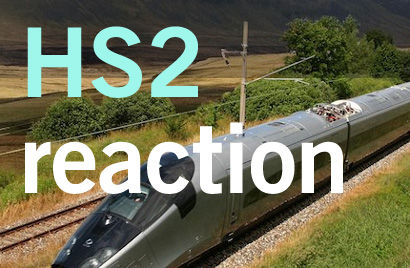DESPITE predictions to the contrary, plans to build the HS2 High Speed line seem to have had only a limited impact on the results of this month's county council elections, or in the surge of support for UKIP that became clear as the results were declared.
UKIP did achieve a notable success in Buckinghamshire, where it gained six county council seats – five of them in the Aylesbury area – and opponents to the scheme are claiming a significant victory.
Martin Tett, the leader of Bucks county council and chairman of the 51M Group of local authorities opposing the HS2 route, said: “Most of the UKIP gains were along the line of HS2. Great Missenden, Wendover, these are all areas highly affected by HS2. Both main parties have lost heavily to the party that promises to cancel HS2 and for me there’s something there for the government nationally to look at.”
But in the other shire counties affected by the route of HS2 – Oxfordshire, Warwickshire and Staffordshire – UKIP made no breakthroughs. Indeed, in Staffordshire UKIP lost one of the three seats the party already held.
Under Conservative control, Oxfordshire and Warwickshire had both opposed HS2 and supported 51M for the past two years. And Staffordshire, also Tory controlled, decided to oppose HS2 just as the election campaign started last month.
But despite their opposition to the new railway, in both Oxfordshire and Warwickshire the Conservatives lost overall control of their county councils, while in Staffordshire the Tories clung on to control with a much reduced majority after Labour gained 21 seats.
In Warwickshire, where Labour gained in 12 wards, two Conservative seats were taken by the Green Party, which also opposes HS2 – but these seats are in parts of the county (Nuneaton and Leamington Spa) through which HS2 will not pass.
The Greens also retained two seats they already held in Oxfordshire, but UKIP failed to win in any Oxfordshire wards.
Writing from Buckinghamshire on the right-wing Spectator magazine’s web site, Sebastian Payne comments: “The HS2 fixation reveals UKIP’s biggest strength and weakness. They’ve no doubt picked up a significant amount of votes in Buckinghamshire for their opposition but their opposition could be classed as opportunism.
“UKIP’s policy on High Speed Rail isn’t as straightforward as the voters of Buckinghamshire would believe,” says the writer, pointing that at the last general election “UKIP actually promised in their 2010 manifesto ‘three new 200mph-plus high-speed rail lines”.
He concluded: “UKIP appear to resonate in Bucks purely because of their anti-political credentials, not their actual policies.”


